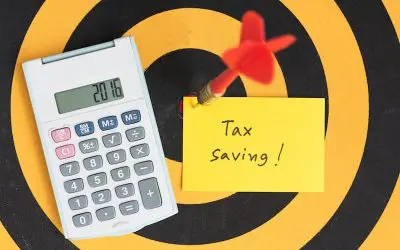Congratulations, you’ve achieved a high return on the property investment you just sold, but now it’s time to consider how much of the capital gains are taxable.
What is a capital gains tax?
If you sell an asset for more than you paid for it then that profit is up for federal taxing. A capital gains tax is a federally-paid fee made on any profits from selling specific kinds of assets. These assets include investments such as stocks, bonds, and precious metals, or tangible assets such as real estate, property, vehicles, and boats.
Can you avoid capital gains taxes?
The good news: Generally, the IRS does allow you to exclude a certain amount based on your single or joint status. If you are single, you can look at excluding $250,000 of capital gains on real estate profits. If married and filing jointly, then you can look at excluding $500,000 of capital gains taxes. For instance, if you purchased a home several years ago for $150,000 and recently sold it at $750,000, then you would make $600,000. If filing jointly, then $500,000 of that profit could potentially not be subject to the capital gains tax, while the remaining $100,000 would be.
The bad news: You may have to pay tax on the entire profit if these factors apply to your situation:
- You did not own the property longer than two years in the five-year interval of time before selling it.
- The property you sold was not your primary residence.
- You have already claimed the $250,000 or $500,000 tax exclusion on another property in the two-year interval before selling this property.
- You lived in the house for less than two years in the five-year interval before selling it. Depending on your situation, however, you may get a break here if you are part of the military, foreign service, intelligence, and disabled communities. Look to the IRS for specific details.
- You bought the property through a 1031, or similar exchange in the last five years. Basically, this transaction is when two investment properties are swapped for one another.
- You are responsible for an expatriation tax, which affects people who renounce their U.S. citizenship.
What capital gains tax rate applies to you?
No matter whether you end up paying tax on part or all of the gains you made on the sale of your property, you’ll need to know which capital gains tax rate is relevant to you.
- If you owned the real estate asset for less than a year, then the short-term capital gains tax rate will typically apply to your situation. This tax rate is equal to your regular income tax rate, or tax bracket.
- If you owned your asset for more than a year, then the long-term capital gains tax rate should apply to your situation. Although it ultimately depends on your filing status and income, the long-term tax rate is lighter than the short-term tax rate, and some people may even qualify for a 0% tax rate. Others will either pay at a 15% or 20% tax rate.
Tips to avoid a capital gains tax on a property sale: If you do want to avoid paying as much as possible in capital gains taxes, then here are a few things that you can do.
- Live in the house you plan to sell for at least two years. The two years do not have to be consecutive within a five-year interval, but this is something that house-flippers should be aware of in particular. If you sell a property that you did not live in for two years at least, then the gains on it will likely be taxable. And if you sell in less than a year, then the capital gains will be especially onerous because you will also be subject to the short-term capital gains tax as opposed to the long-term, which is higher. Be mindful that quickly buying and selling a home at a profit may put you at a higher risk for higher capital gains taxes.
- Keep your home improvement receipts. Property improvements you have made over the years can be included in the cost basis of the property. Having a higher basis cost may allow your sale gains to be less vulnerable to the capital gains tax. Improvements can include landscaping, remodeling, HVAC installs, and expansions, and may ultimately help cut your capital gains tax.
- See if you qualify for a tax exception. Check to see if there are any more possible exceptions on the taxable gains based on the reason you sold your property. If you sold your property due to work, health, or some kind of unforeseeable event, then increased tax exclusions may apply to your property sale.
Grow your real estate portfolio with High Return Real Estate, where we apply our fully systemized turnkey real estate investing practices to help our clients earn powerful streams of passive rental income—some of the highest returns in real estate investing today.




